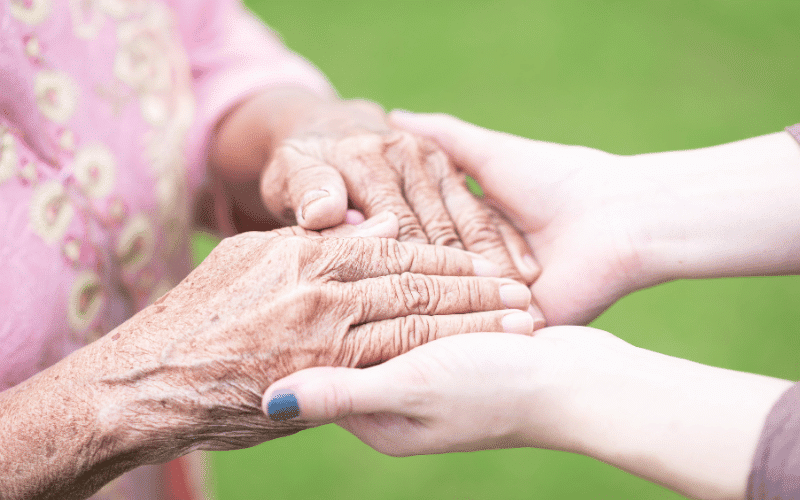10. The Power of Touch: The Role of Physical Contact in Dementia Care

Physical touch is a powerful form of communication, particularly for people with dementia, who may struggle with verbal communication. Used appropriately, touch can convey love, security, and companionship, providing immense comfort to your loved one.
Starting off, we can look at the benefits of simple, everyday actions, like holding hands or a gentle pat on the back. These forms of touch can communicate care and reassurance, helping to reduce anxiety and induce calmness in a person with dementia.
Taking it a step further, consider introducing structured touch therapies like massage. These have been shown to relieve stress, improve mood, and enhance physical relaxation in people with dementia. With some basic training, you can provide simple massages to your loved one at home.
Touch can also be beneficial during routine care tasks, such as grooming or dressing. Approach these tasks with care and patience, ensuring to respect your loved one’s dignity and personal space. Your gentle touch during these intimate moments can foster a deeper bond and build trust.
Another aspect is considering your loved one’s personal comfort and consent. Always approach touch respectfully and take cues from your loved one’s reactions. If they seem uncomfortable or resist touch, respect their boundaries. Each person’s preferences and comfort levels can differ.
Lastly, keep in mind that touch alone doesn’t replace other forms of communication. Continue speaking to your loved one, maintaining eye contact, and using reassuring words along with your touch. This combined approach can provide a greater sense of security and connection. (10)